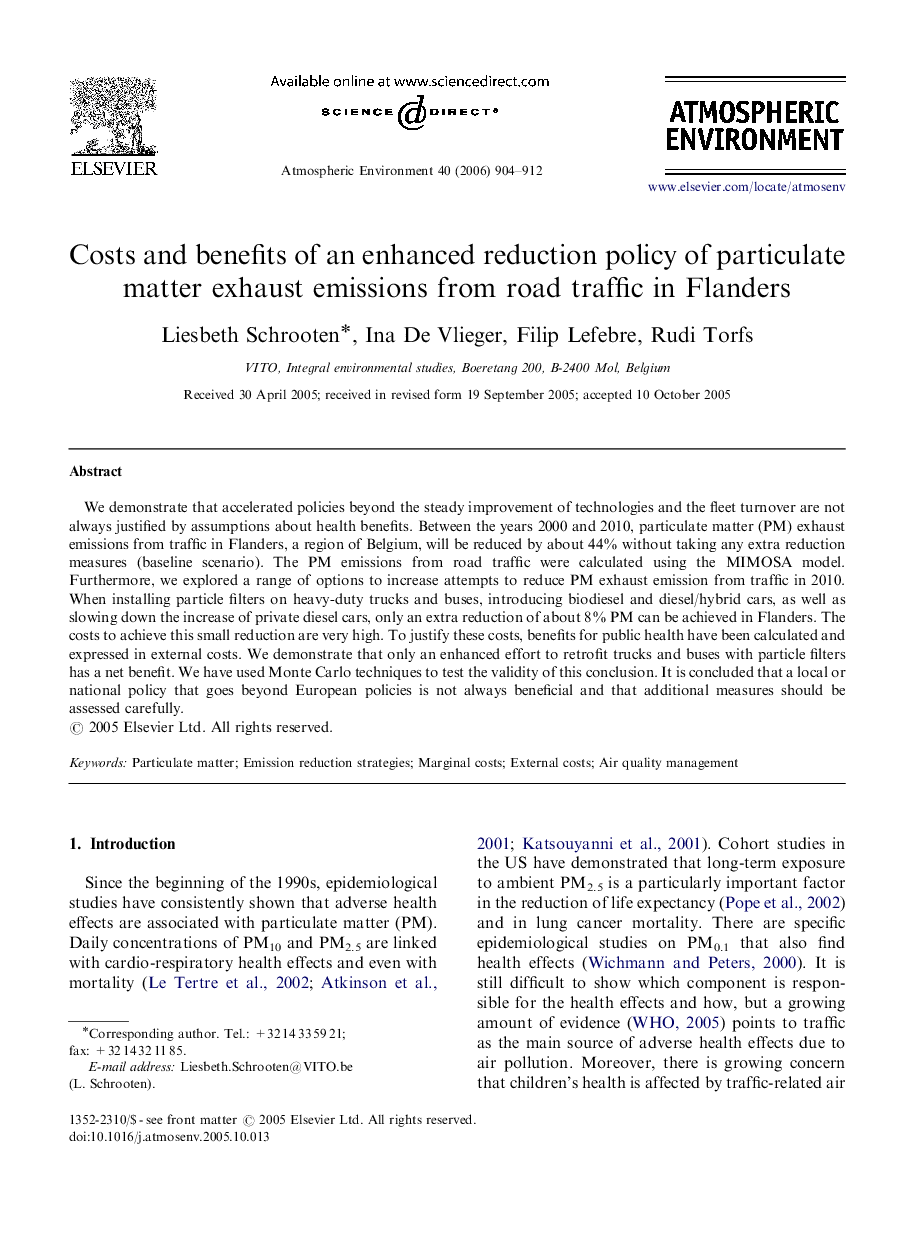| Article ID | Journal | Published Year | Pages | File Type |
|---|---|---|---|---|
| 4444341 | Atmospheric Environment | 2006 | 9 Pages |
We demonstrate that accelerated policies beyond the steady improvement of technologies and the fleet turnover are not always justified by assumptions about health benefits. Between the years 2000 and 2010, particulate matter (PM) exhaust emissions from traffic in Flanders, a region of Belgium, will be reduced by about 44% without taking any extra reduction measures (baseline scenario). The PM emissions from road traffic were calculated using the MIMOSA model. Furthermore, we explored a range of options to increase attempts to reduce PM exhaust emission from traffic in 2010. When installing particle filters on heavy-duty trucks and buses, introducing biodiesel and diesel/hybrid cars, as well as slowing down the increase of private diesel cars, only an extra reduction of about 8% PM can be achieved in Flanders. The costs to achieve this small reduction are very high. To justify these costs, benefits for public health have been calculated and expressed in external costs. We demonstrate that only an enhanced effort to retrofit trucks and buses with particle filters has a net benefit. We have used Monte Carlo techniques to test the validity of this conclusion. It is concluded that a local or national policy that goes beyond European policies is not always beneficial and that additional measures should be assessed carefully.
